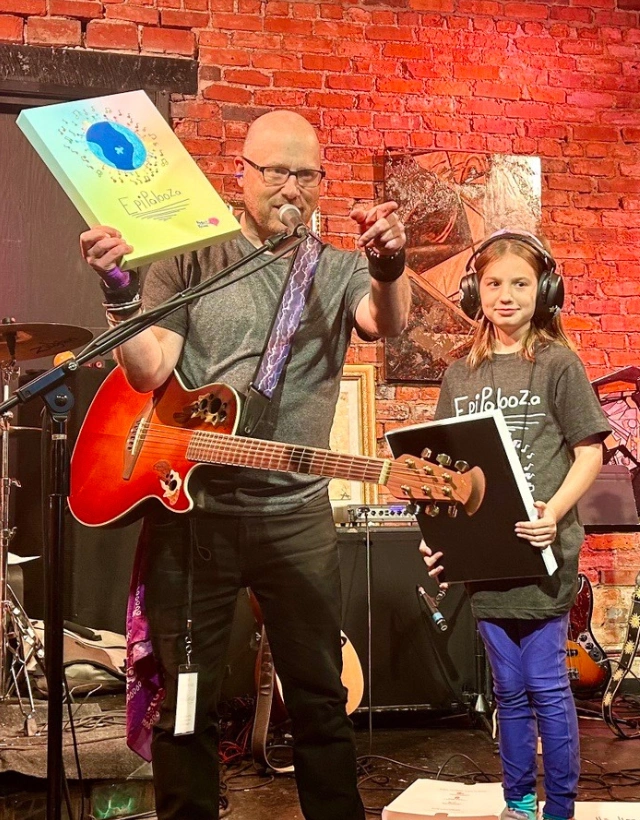“The next thing I knew I was having a seizure,” Matt says. “I was unconscious, had a tonic-clonic seizure. The door was locked.”
He woke up in the hospital, not remembering the panic his mom felt as she ran to the bathroom, unlocked the door, and found him seizing on the floor. It would take a second seizure — a neck seizure — for Matt to receive his epilepsy diagnosis.
With no ability to research online and little information from the doctor, he didn’t even know what form of epilepsy he had.
“Speaking to my neurologist as an adult, I think it was juvenile myoclonic epilepsy,” Matt says.
He was prescribed medication from the start. Though he experimented with different doses, he found one that controlled his seizures then and now.
“Those two seizures, knock on wood, have been it for me,” he says. “I’m extremely fortunate and extremely grateful for that.”
Fast forward to 2020, when Matt watched his four-year-old daughter, Abigail, seize for the first time. Matt prompted her to get ready to go to a friend’s house, but Abigail ignored him. He quickly realized she was experiencing an absence seizure.
“She started to vomit,” Matt says. “And then she started convulsing and having a tonic-clonic seizure.”
The seizure stopped when the paramedics came, but Abigail seized again in the ambulance. Yet, she didn’t receive a diagnosis or start medication that day.
“They did the same thing, a wait-and-see,” he says. “It was extremely scary.”
But when she’d go to sleep, she’d seize again, until finally doctors diagnosed her with focal seizures and prescribed medication. She suffered through nine more seizures before finding the right dosage and frequency to control her seizures.
“She’s been seizure-free for 18 months,” he says. “She had a breakthrough seizure about a year after that, but she’s been seizure-free since.”
Abigail’s diagnosis drove him to build community, specifically as a CURE Epilepsy Champion. He founded EpiPalooza because while he didn’t know much about epilepsy, he knew music.
“I called the venue that I’ve played before, and then I just found some artists that I’d talked to before,” he says. “I put on that first show and raised some money and raised awareness because I wanted people to learn about epilepsy.”
According to Matt, that message has reached people in unexpected places.
“My own neighbor, I learned through this, her son has epilepsy,” Matt says. “That’s why I tell people, if they can’t donate, spread it. You have no idea how many people are affected by this.”
He knows exactly how many because he’s one of them. It’s for them that he proudly hosts EpiPalooza every year, building community and raising funds for the cure.





